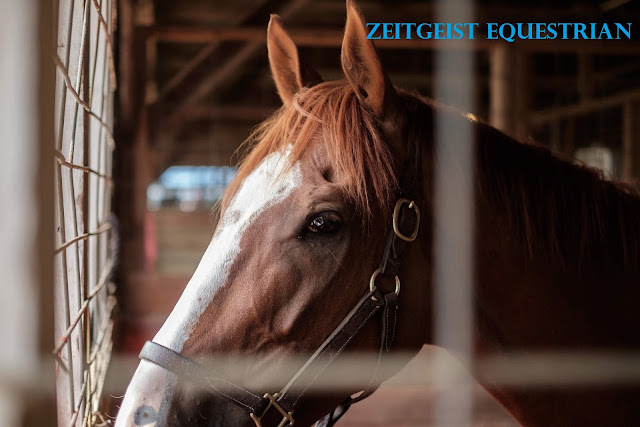Over time horses get tensed and aggressive while making slights and jumps. But with a few precautions and measures, you can train your horse to behave in a disciplined way. Here in this article, we will discuss how you can train your horse during flying routines.
When you work with experienced horses before the major showdown, your horse needs to feel more encouraged and confident. You need to brush it to make it feel relaxed. These horses will acquire your senses than the top hunter horses for sale in NC, who behave aggressively upon call.
Flying modes are all about bringing balance and the equal
weight of the canter. You and your horse will stay in proper balance when the
canter is right. This is the moment when you can teach your horse about a
proper quality change in the overall ride; instead of just explaining the
directional change. You need to follow certain routines before the event to
attain it, and it mentioned below
Straight alignment is the key
Always make sure your horse is maintaining straight
alignment when it is about to jump and fly. This is when they try to get more
jump and flight. If it starts to swing more, it losses its balance. When the
position of the horse is straight, it can make the change easily.
But right after this if the horse keeps on riding or
jumping too much after the change, take them for more distance. After letting
them walk for some distance, initiate another change to the outside.
● If your horse does not make a change, this must imply
that he is underconfident to make a swing. In such cases, take another detour
for a meter or two, and try it again.
● If your horse does not react aggressively and stays
patient, and improvises changes, try to impulse more variations in the canter.
If you have a canter with a height of five bars, initiate the change at the
canter, without spending much energy on the horse.
● If it gets flighty while making the changes it's
important to change your position and ride on the serpentine. After the horse
makes a change, take them for a small circle. This can be done by taking them
for a turn after the change is done.
You need to work on getting some wrong practices and
habits away from your horse. One of those is throwing yourself and hanging onto
its mouth. Usually, riders do this after the change to slow down. This adds
more discomfort to the horse and makes it flight and aggressive during the
course. And eventually cakes theme tense to not follow your lead.
What should you practice with your horse instead?
If your horse is trained more towards transitions, it
helps in building the horse’s core strength, improves the push power which
helps during the jumps. When you direct over unique changes, these transition
exercises come in handy.
But before these changes, train your horse to make simple
moves as well. These simple moves such as walk to canter to walk
transitions with any pre-run or jogging. Do not take the help of using the
reins to balance. All you need to regulate is keeping the horse ride forward in
proper balance without using these support tools.
Practice your horse for the change using the lower leg.
Improve your stance by looking up and straight ahead. Keep your head parallel
with the shoulder of the horse. Use your lower leg while initiating the ride
and change to the right.
Most of the horses including, the ones in world cup horses in Northern California take some time to understand the
change. They take time in learning one kind of change. It takes time, and they
struggle much to learn other ways of learning the change in a set of
directions. Don't stress over your horse for it.
If you are looking out for such horses, you must check
with Zequus, one of the best options for trained horses. They provide top trained horses for sale in NC. Well rained for sports, events, and
races, you will find the best quality of horses with Zequus. Check the Website
now.

Comments
Post a Comment